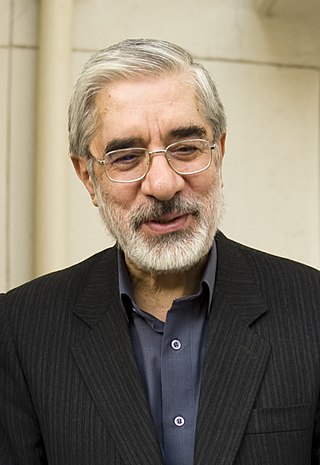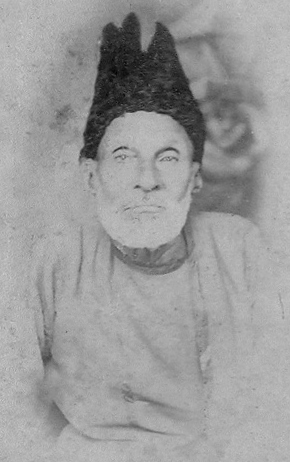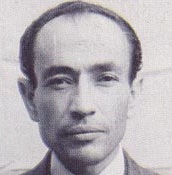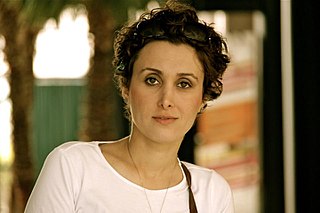
Khājeh Shams-od-Dīn Moḥammad Ḥāfeẓ-e Shīrāzī, known by his pen name Hafez or Hafiz, was a Persian lyric poet whose collected works are regarded by many Iranians as one of the highest pinnacles of Persian literature. His works are often found in the homes of Persian speakers, who learn his poems by heart and use them as everyday proverbs and sayings. His life and poems have become the subjects of much analysis, commentary, and interpretation, influencing post-14th century Persian writing more than any other Persian author.

The ghazal is a form of amatory poem or ode, originating in Arabic poetry. Ghazals often deal with topics of spiritual and romantic love and may be understood as a poetic expression of both the pain of loss or separation from the beloved and the beauty of love in spite of that pain.

Persian literature comprises oral compositions and written texts in the Persian language and is one of the world's oldest literatures. It spans over two-and-a-half millennia. Its sources have been within Greater Iran including present-day Iran, Iraq, Afghanistan, the Caucasus, and Turkey, regions of Central Asia, South Asia and the Balkans where the Persian language has historically been either the native or official language.

Nima Yooshij or Nimā Yushij, also called Nimā (نیما), née Ali Esfandiari, was a prominent Iranian poet. He is famous for his style of poetry which he popularized, called she'r-e now, also known as She'r-e Nimaa'i in his honour after his death. He is considered as the father of modern Persian poetry.

Mehdi Karroubi is an Iranian Shia cleric and reformist politician leading the National Trust Party. Following 2009–2010 Iranian election protests, Karroubi was put under house arrest in February 2011. As of 2021, he is still confined to his house.

Mir-Hossein Mousavi Khameneh is an Iranian socialist politician, artist, architect and opposition figure who served as the 45th and last Prime Minister of Iran from 1981 to 1989. He was a reformist candidate for the 2009 presidential election and eventually the leader of the opposition in the post-election unrest. Mousavi served as the president of the Iranian Academy of Arts until 2009, when conservative authorities removed him. Although Mousavi had always considered himself a reformist and believed in promoting change within the 1979 constitution, on 3 February 2023, in response to the Mahsa Amini protests, he announced his opposition to the Islamic Republic and asked for a widespread referendum to fully change the constitution and make a fundamental change in Iran's political system.

Amir Hushang Ebtehaj, also known by his pen name H. E. Sayeh, was an Iranian poet of the 20th century, whose life and work spans many of Iran's political, cultural and literary upheavals.

Mehdi Akhavān-Sāles, or Akhavān-Sāless, pen name Mim. Omid was a prominent Iranian poet. He is one of the pioneers of Free Verse in the Persian language.

Simin Behbahani, her surname also appears as Bihbahani was a prominent Iranian contemporary poet, lyricist, and activist. Renowned for her mastery of the ghazal, a traditional poetic form, she became an icon of modern Persian poetry. The Iranian intelligentsia and literati affectionately referred to her as the "Lioness of Iran."

Mirza Asadullah Beg Khan (1797–1869), also known as Mirza Ghalib, was an Indian poet. He was popularly known by the pen names Ghalib and Asad. His honorific was Dabir-ul-Mulk, Najm-ud-Daula. During his lifetime, the already declining Mughal Empire was eclipsed and displaced by the British East India Company rule and finally deposed following the defeat of the Indian Rebellion of 1857; these are described through his work.

Afzal al-Dīn Badīl ibn ʿAlī ibn ʿOthmān, commonly known as Khāqānī, was a major Persian poet and prose-writer. He was born in Transcaucasia in the historical region known as Shirvan, where he served as an ode-writer to the Shirvanshahs. His fame most securely rests upon the qasidas collected in his Divān, and his autobiographical travelogue Tohfat al-ʿErāqayn. He is also notable for his exploration of the genre that later became known as habsiyāt.

Mehdi Hamidi Shirazi was an Iranian poet and university professor.
Heshmatiyeh Prison is a prison in Iran, located on a Revolutionary Guards (IRGC) base, in the North-East of Tehran. It is noted for its political prisoners' wing.
Heyran Donboli was an Iranian female poet who composed works in Persian, as well as some in Azerbaijani Turkic. Born between 1785–1790, she was a member of the Turkic-speaking Kurdish Donboli tribe in the Azerbaijan region. Her exact name and birthplace remain uncertain, with suggestions including Nakhchivan, Tabriz and Urmia. Following the Iranian cession of Nakhchivan to Russia in 1813, she and her family moved south of the Aras River, settling in the village of Khaneqah Sorkh. Heyran's poetry, characterized by its straightforward language and emotional expression of women's experiences, was a rarity in Qajar Iran, where literacy was low and women's public roles were limited in a male dominated society. She was a proponent of the Bazgasht-e adabi literary movement, advocating a return to classical Persian styles.

Fatemeh Shams, also known as Shahrzad F. Shams is a contemporary Persian poet, literary scholar and translator, currently based in Philadelphia, Pennsylvania and teaching Persian literature at the University of Pennsylvania. She previously taught Persian literature and language at Oxford University, Courtauld Institute of Art, Somerset House, and School of Oriental and African Studies in London, UK.

Fateme Ekhtesari, also Fatemeh Ekhtesari, is an Iranian poet. Ekhtesari lived in Karaj and she writes in Persian. In 2013, she appeared at the poetry festival in Gothenburg. After she arrived back in Iran she was imprisoned and later released on bail. Her verdict came in 2015 when she was sentenced to 99 lashes and 11.5 years imprisonment for crimes against the Iranian government, for immoral behaviour and blasphemy.

Mehdi Rajabian is an Iranian composer and musician. He was imprisoned for pursuing illegal musical activities in 2013 and 2015. In 2019, he released the album Middle Eastern in collaboration with a number of other Middle Eastern artists. Rajabian as the first composer who received the Minority Award of the United Nations. Rajabian has collaborated with musicians including Harvey Mason Jr., Jeff Coffin, Daniel Ho, Wouter Kellerman, Taylor Eigsti, Nicole Zuraitis, Emmanuele Baldini in different projects. Rajabian made music for several official video teasers of Mercedes-Benz.
Fatemeh Moosavi is an Iranian film director, photographer, script writer, and film producer. Her two most successful documentaries are Swallow produced in 2013 and My Heritage Singing in 2015, which both were chosen film of Iran international documentary film festival.
She'r-e Nimaa'i is a school of Modernist poetry in Iran that is derived from the literary theory of Nima Yooshij, a contemporary Iranian poet. Nima Yooshij revolutionized the stagnant atmosphere of Iranian poetry with the influential poem Afsaneh, which was the manifesto of She'r-e Nimaa'i. He consciously challenged all the foundations and structures of ancient Persian poetry. The nature of Mazandaran, social criticism, and humor are just a few examples of the themes that Nima Yooshij used in his poems. She'r-e Nimaa'i was the source of inspiration and growth of many great modern Iranian poets, including Sohrab Sepehri, Forough Farrokhzad, Mehdi Akhavan-Sales and Fereydoun Moshiri.

The Postmodern Ghazal, also referred to as **Postmodern or Post-traditional Poetry**, is a literary movement in Persian poetry that emerged during the 1990s in Iran. It blends postmodernism with traditional Persian poetic forms such as ghazal, mathnawi, and rubaiyat. This movement combines postmodern philosophy, linguistics, and sociology with the metrical and rhymed structures of classical Persian poetry.
















